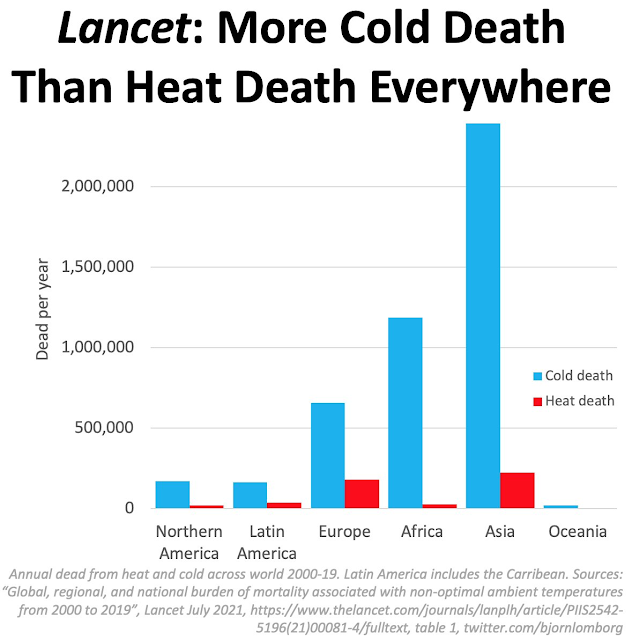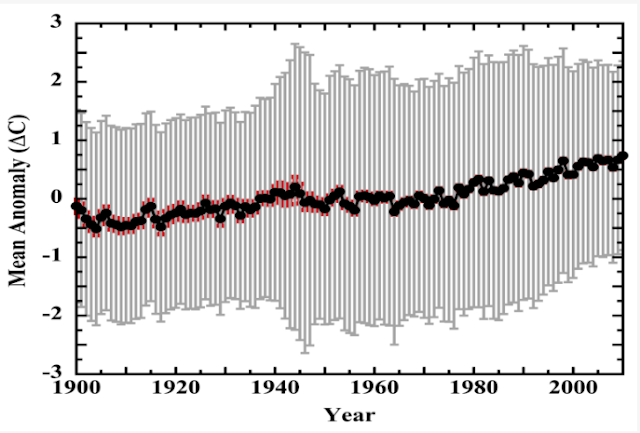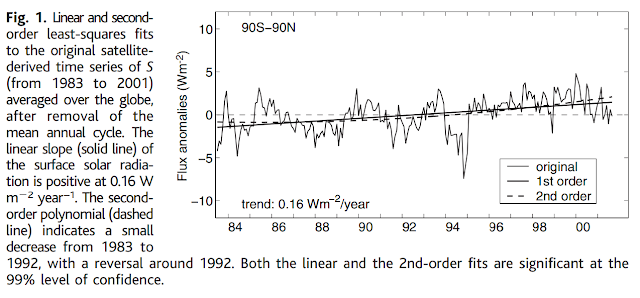Does Cold Weather Kill More than Hot Weather?

If you follow contrarian talking points on social media, you might get the impression that cold weather kills more people than hot weather, and so global warming will result in fewer deaths, and lives will be saved as the planet warms. You can see this in this graph from Bjorn Lomborg, based on a Lancet study[1] that quantifies "cold-related" and "heat-related" deaths. This kind of thinking may seem superficially convincing, but with a little investigation, much of what is being said by Lomborg (and others) is incredibly misleading. It's based on a misunderstanding of what these types of studies say, as well as some flawed logic about how deaths will be affected by warming. Cold vs Hot Related Deaths This Lancet paper is one of many[2][3] based on a concept of "minimum mortality temperature" (MMT), which is defined as the mean temperature at which non-accidental death rates in any particular location is the lowest. In most places the mortality rate i



